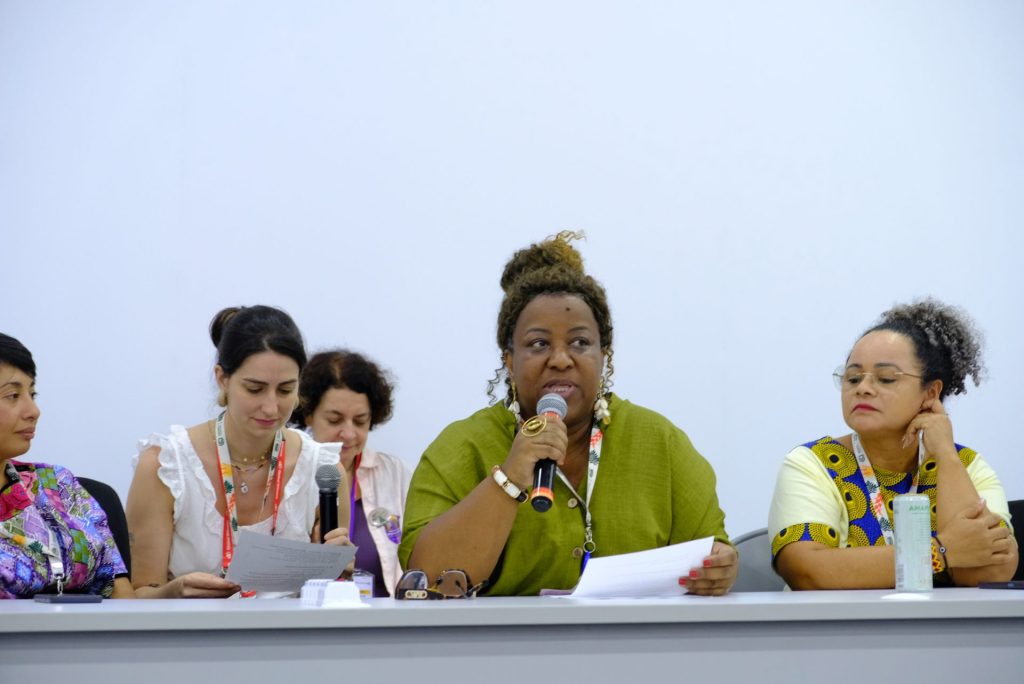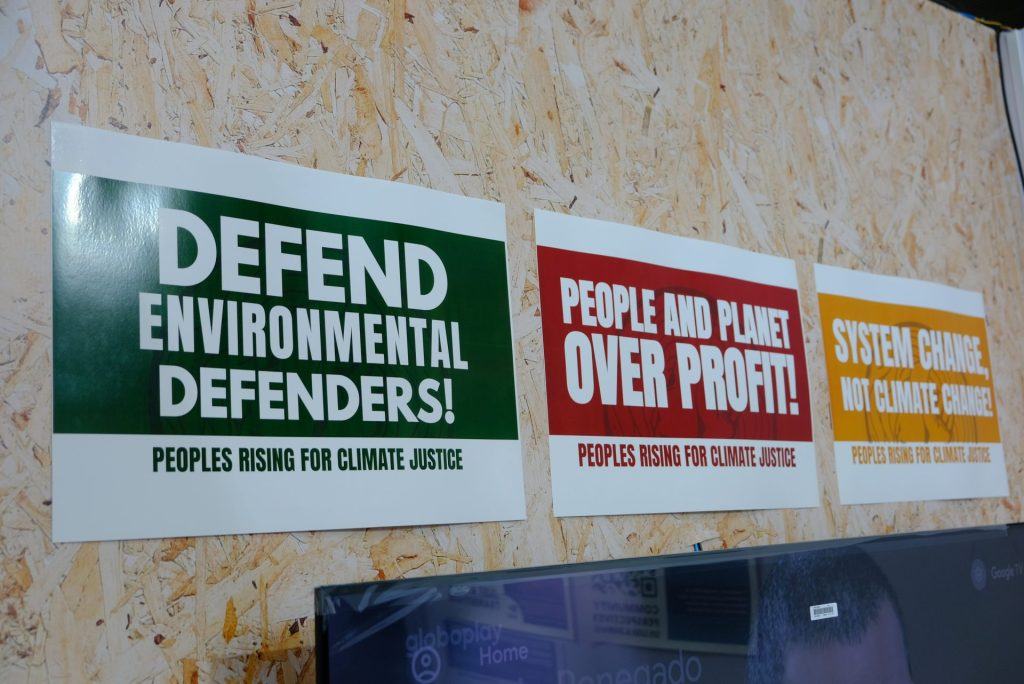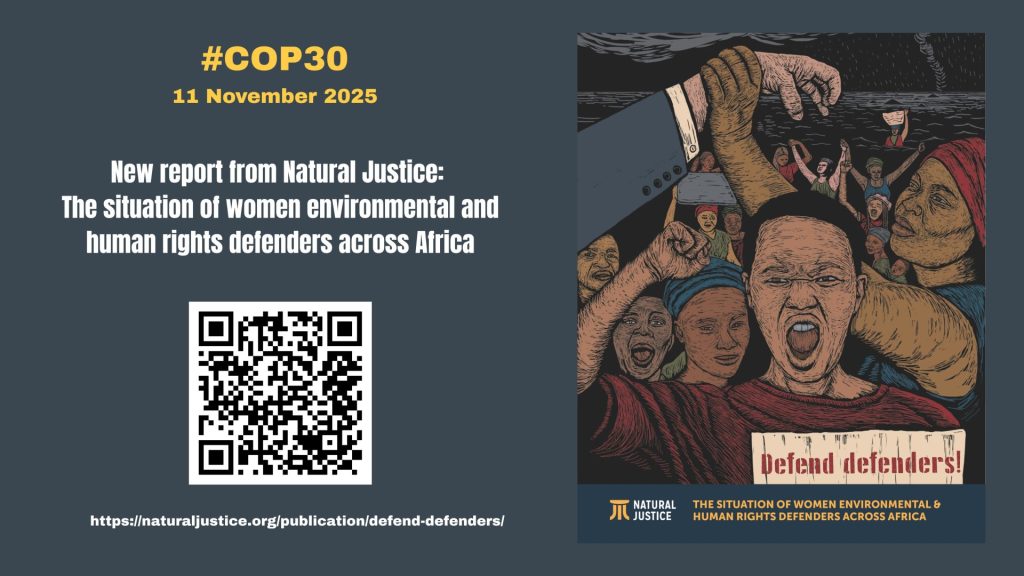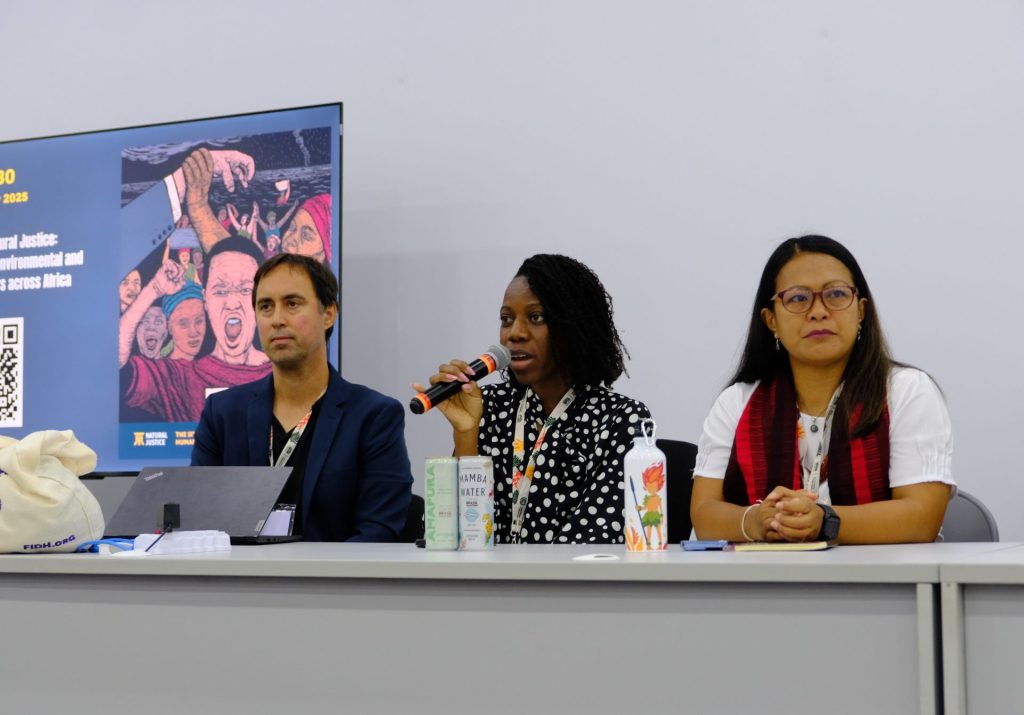“Today I live with the threat of a bullet to my head”, said a young woman environmental defender at a COP30 side event on Tuesday this week. “I don’t want to be part of the data [on killings]. I don’t want to be another statistic.”
These heartbreaking words come at a time when threats to environmental defenders across the world remain at an all-time high. In Brazil, where this young woman comes from, Amazonian indigenous peoples are facing threats from logging and mining companies, and this region remains one of the worst for killings. Global Witness documented 413 defenders killed between 2012-2014, while the latest report from Justica Global and Terra de Direitos documenting 486 attacks against defenders from 2023-2024.
Brazil, as host to the COP30, chose the site of Belem, deep in the northern part of the Amazon forest and alongside the awe-inspiring Amazon River, to host the negotiations. This was a symbolic and political decision to highlight the need for Amazon’s protection.
This is a contested space, however. Late on Tuesday night, protesting indigenous people and their supporters broke through security barriers calling for a COP that reflects the voices of communities.
Many delegates and followers of COP are asking when words will become action. One Guatemalan defender asked the question: “Is the work that I am doing here working? Because my reality is not different.” She was forced to leave her territory after facing threats – leaving behind not only her home, but also her culture.
The implications of threats on defenders was brought into stark reality as each defender on the panel talked about their own experiences – from Kenya, the Philippines to Brazil, Latin America and the DRC. Said the Brazilian defender, “Fights in territories are the same across the world”.
Defender stories and their role in data collection
These stories form a backdrop of a growing collection of data and evidence of attacks on defenders. A large and growing network of NGOs have been working for many years to bring this evidence to public forums, like COP30, and call for accountability and action against the perpetrators.
Natural Justice has been gathering data on attacks across Africa – and this has helped to bring Africa into the foreground in terms of data on what human rights violations are being perpetrated by governments and business, and which countries are the worst for these attacks.
At the side event, we launched our latest publication: Defend Defenders! This report details the situation of women environmental and human rights defenders across Africa and brings firsthand and detailed accounts of how women defenders do their work and the unique challenges they face in doing so.

What makes the experience of women defenders unique
By documenting the experience of women defenders specifically, policy can and should take their circumstances in account when governments institute protections for defenders. For one, many women are simply doing what they must to fight for their families and communities, never considering themselves as “defenders” and never seeking support when they need it. They often come from a place of disadvantage and inequality – left out of decision-making platforms, part of patriarchal societies, confined to home life and threatened in ways that create trauma and fear for themselves and their families.
An East African woman defender tells the story of her own awakening to her activism when she was just a young girl and realised that her family does not own the land she lived on. Many years later, she is still an active land and environmental defender to this day, but faces many threats – from companies, her government, but also from her community.
“It doesn’t come easy, it comes with a price. Most of the time, we face intimidation, we face sexual violence and we face persecution from those in our communities that don’t believe in what you do.”
Data is key to good decisions
“Protecting who protects, is a guarantee of life.” The Brazilian government’s Minister of Human Rights and Citizenship, Macaé Maria Evaristo dos Santos, also attended the event. She reflected on the importance of data in how we can understand the complexity of the lives of environmental defenders, but also the complexity of the violence metred out against them. “We can see what we didn’t see before”. This allows governments to create policies and implement actions specially for the protection of defenders.
One of the key actions to protect defenders is to bring perpetrators of threats to account. This reality is scarce for defenders. In South Africa, two high profile killings of Mam’ Fikile Ntshangase and Bazooka Radebe are “still being investigated”. So far, no one has been arrested.

What is needed from COP30
Panelists from the side event provided some recommendations on how COP30 outcomes can benefit defenders. Crucially, negotiators are called on to understand the value of protecting defenders in order to create a situation of climate justice. As one defender stated: “Our participation should be treated as critical.”
When talking of the Gender Action Plan coming from COP30, negotiators must include explicit recognition of WEHRDs and effective mechanisms for their protection. Other outcomes from COP30 can assist if defenders are expressly protected as part of government commitments – like in the Nationally Determined Contributions – which should move beyond just figures about carbon reduction commitments, towards commitments to changing societies. All climate finance mechanisms, whether in Just Transition, Loss and Damage, or any other instruments, institutions must secure guarantees on protection of defenders. Finally, provision of direct and rapid response funds will make a difference to the lives of those at the frontlines.
Michel Forst, the UN Special Rapporteur for Environmental Defenders under the Aarhus Convention, in his closing remarks, reminded us that we either to stand with defenders or silence them.
States now have a responsibility towards defenders – and it is no longer a choice. A recent Advisory Opinion by the Court of International Justice has made it clear that states must protect the universal human right to a healthy environment and procedural rights in the face of the climate crisis. The former right, as well as the rights that form the basis of procedural justice, such as access to information and the right to participate, form the backbone of the work of environmental defenders.
This side event was another call to action. As the Brazilian Minister affirmed, “This fight starts and ends with solidarity.”
The event was organised by Global Witness, Natural Justice, CAMBIAMO, CEC, FIDH, Civicus – held at COP30 on Tuesday, 11 November 2025, and entitled: “Environmental Defenders & Communities: A Cross-cutting priority in climate negotiations & decisions.”
Also see our latest publication on Trends in the Data: https://naturaljustice.org/publication/report-on-threats-against-environmental-defenders-in-africa/


